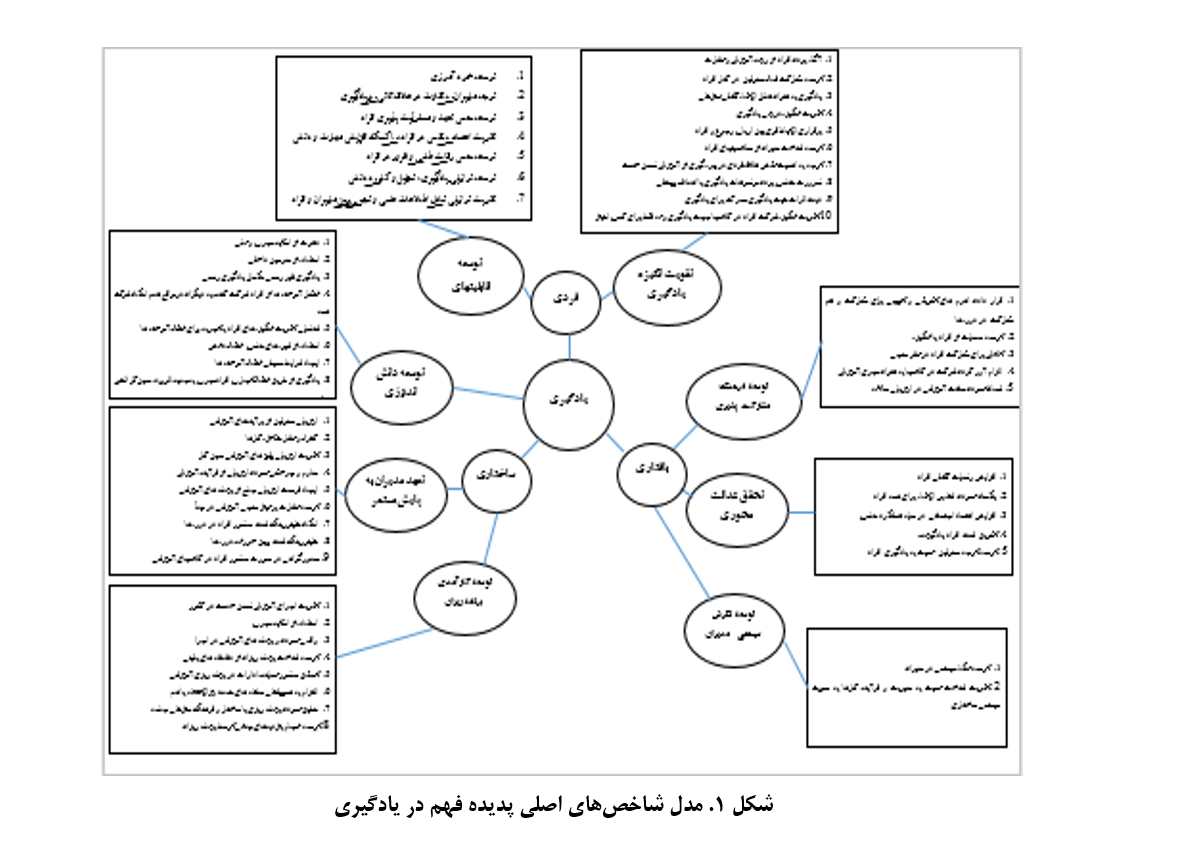Analysis of the Meaning of Understanding in Gadamer's Perspective to Present a Conceptual Model of Teaching-Learning Strategies
Keywords:
Understanding, Hermeneutics, Teaching-Learning Strategies, Dialogue, GadamerAbstract
This study aims to analyze the meaning of "understanding" in Gadamer's perspective and its application in constructing a conceptual model for teaching-learning. The research adopts an analytical-descriptive method within the scope of examining the educational and pedagogical foundations and achievements, incorporating both analysis and description alongside interviews. The findings indicate that the analysis of the meaning of understanding in Gadamer's view reveals that understanding, as a dynamic, interactive, and interpretive process, can provide a framework for designing innovative teaching-learning strategies. Gadamer's key principles, such as the fusion of horizons, preconceptions, and dialogue, suggest that learning becomes meaningful and profound when students and teachers engage in a dialogue-based process of meaning-making. This perspective emphasizes that teachers should act as facilitators of learning rather than mere transmitters of knowledge and should enhance the connection between students' prior and new knowledge by recognizing their preconceptions. The proposed conceptual model of this research, focusing on interactive environments, designing open-ended questions, and participatory activities, offers strategies to enhance critical thinking and interaction in the learning process. These findings align with Dewey and Vygotsky’s theories of experiential and social learning but provide a deeper philosophical emphasis on the role of dialogue and interpretation. The study's outcomes can contribute to improving the quality of education in various learning environments.
Downloads
References
Siemens G. Connectivism: A Learning Theory for the Digital Age. International Journal of Instructional Technology
and Distance Learning. 2005.
Aliakbari F, Salimzadeh M. Analysis of the concept of "dialogue" in Gadamer's hermeneutic theory and its application
in teaching-learning. Journal of Educational Studies. 2019;7(3):112-30.
Mirzaei J. Examining the impact of Gadamer's approach in curriculum design for secondary schools. Quarterly Journal
of Education. 2019;20(2):112-26.
Hosseini M, Abdollahzadeh A. Modeling teaching-learning from Gadamer's perspective in higher education. Journal
of Educational Research. 2021;15(3):45-62.
Gadamer HG. Truth and Method: Bloomsbury Academic; 2018.
Heidegger M. Being and Time: Blackwell; 1971.
Mohamadinejad M. Understanding and Hermeneutics: Gadamer's Philosophical Contribution to the Education
Theory. Journal of Educational Philosophy. 2022;30(2):99-112.
Mohammadinejad M. Educational Strategies for the Alpha Generation: Bridging Traditional and Digital Learning
Approaches. Journal of Modern Education. 2022;15(1):65-80.
Bruner J. Toward a Theory of Instruction: Harvard University Press; 1966.
Shahbazi J. Application of Gadamerian methods in teaching humanities concepts in universities. Journal of Higher
Education. 2020;14(1):88-101.
Aristotle. Nicomachean Ethics: Oxford University Press TRAN - David Ross; 2009.
Allen K, Smith J. The Dialogic Learning Environment: Applications of Gadamer's Hermeneutics in Education. Journal
of Educational Philosophy. 2020;45(2):143-57.
Ricoeur P. Hermeneutics and the Human Sciences: Cambridge University Press; 1981.
Dastneshan R, Jalali S. Investigating the impact of dialogue in teaching-learning in the digital age: A study in Iranian
schools. Journal of Educational Sciences. 2023;23(4):56-72.

Downloads
Published
Submitted
Revised
Accepted
Issue
Section
License
Copyright (c) 1403 Journal of Study and Innovation in Education and Development

This work is licensed under a Creative Commons Attribution-NonCommercial 4.0 International License.










